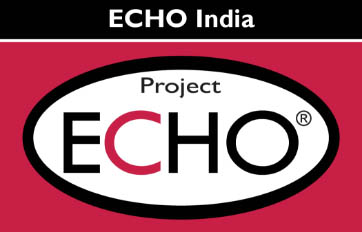Author: Dr. Haresh Chandwani, General Manager, Projects, ECHO India
Reflecting on the National Cancer Day earlier this month, it’s critical to recognize the life-saving potential of early detection. In 2022, the projected number of new cancer cases in India was 1,461,427, with a crude incidence rate of 100.4 per 100,000 individuals. Approximately one in nine people in India is expected to face a cancer diagnosis during their lifetime. However, millions across India, particularly in rural and underserved areas, continue to face profound barriers to basic cancer screening. While the challenges are significant, there is a growing movement across India to confront these obstacles head-on, led by healthcare professionals and public health organizations that are reshaping cancer care accessibility. ECHO India’s Cancer Mukt Bharat initiative, in collaboration with various health bodies and policymakers, exemplifies this commitment to change.
The Reality of Cancer Care in India: Gaps and Challenges
For many Indians, timely cancer screening remains nearly impossible, hindered by geographic remoteness, financial limitations, and a lack of specialized healthcare infrastructure. Rural patients may need to travel for hours to the nearest facility, only to find that trained personnel and equipment are scarce. Overwhelmed healthcare providers face immense patient demand, and the scarcity of trained oncologists and technicians compounds these difficulties. While urban areas may offer better access to cancer care, remote regions are often left underserved, creating a stark disparity.
Further complicating matters is the financial burden associated with cancer care. In a country where out-of-pocket healthcare spending is high, many families must weigh the costs of screening against other pressing needs. For families on tight budgets, cancer screenings become unaffordable, perpetuating a cycle of delayed diagnosis and lower survival rates.
One of the major challenges in India is the late detection of cancer, with many patients seeking medical help only in the terminal stages. The National Cancer Registry Programme Report 2020 indicates that 70-80% of cancer patients in rural areas don't consult doctors until the disease has advanced.
A Beacon of Hope: ECHO India's Cancer Mukt Bharat Initiative
Amid these challenges, ECHO India’s Cancer Mukt Bharat initiative has emerged as a transformative force in the fight against cancer. By focusing on capacity building, the program seeks to equip healthcare providers, including doctors, nurses, oncologists, pediatricians, and Community Healthcare Workers (CHWs), with the skills and knowledge to provide early detection and effective care. Through collaborative events like the National Summit on Cervical Cancer and the National Roundtable Summit on Cancer Prevention, ECHO India brings together experts, policymakers, and stakeholders to address these critical issues on a national scale.
The National Summit on Cervical Cancer in Bengaluru, held on March 9, 2024, showcased ECHO India’s commitment to a #CervicalCancerMuktBharat. In collaboration with the Karnataka Obstetrics and Gynaecology Society, ARTIST for HER, and the Healthcare Sector Skill Council (HSSC) Karnataka, the summit focused on creating a roadmap for accessible, high-quality cervical cancer care. Key initiatives discussed included expanding HPV vaccination campaigns, improving screening services with mobile units and affordable diagnostic tools, ensuring timely diagnosis and treatment, and building healthcare capacity by training local professionals. Notable leaders, including Karnataka’s Health Minister and healthcare experts, emphasized a collaborative commitment to scaling preventive and diagnostic services nationwide.
The National Roundtable Summit on Cancer Prevention, Detection, and Awareness in June 2024, co-hosted by ECHO India and Tata Memorial Centre (TMC) Mumbai, further underscored cancer prevention strategies with a holistic approach. Topics included lifestyle changes, innovative early detection and vaccination strategies, multidisciplinary approaches to care, and ongoing training for healthcare workers to strengthen early detection and patient care capabilities. Both summits highlight ECHO India’s role in capacity building and accessible cancer prevention and treatment for underserved communities.
Toward a Cancer-Free India: Empowering Change from the Ground Up
Through the Cancer Mukt Bharat initiative, ECHO India demonstrates that targeted capacity-building efforts can help mitigate disparities in cancer care. By empowering local healthcare providers with knowledge and skills, ECHO India is creating a ripple effect that brings cancer awareness, screening, and care into communities that have long been overlooked. These efforts also reduce stigma and encourage open conversations about cancer, helping people see screenings as preventive rather than fearful steps.
As India’s healthcare landscape continues to evolve, the path to a Cancer Mukt Bharat is steadily becoming clearer. With sustained investment, capacity building, and nationwide collaboration, we can ensure that every Indian has access to life-saving early detection and quality cancer care. The journey to accessible cancer care for all may be long, but each step brings us closer to making cancer prevention, screening, and treatment a right, not a privilege.
References:
https://ncdirindia.org/display/wcd.aspx
https://www.ncdirindia.org/All_Reports/Report_2020/default.aspx
